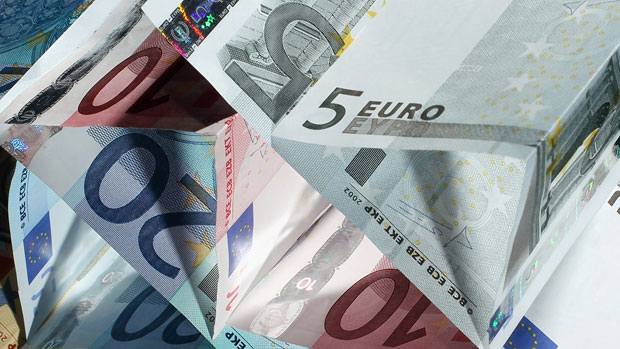Italian Mafia has 'larger annual budget than European Union'
Brutal recession and banks' reluctance to lend leaves more businesses turning to mob for help

A free daily email with the biggest news stories of the day – and the best features from TheWeek.com
You are now subscribed
Your newsletter sign-up was successful
ITALY'S Mafia groups have a bigger annual budget than the European Union, the country's foreign ministry has claimed.
Giovanni Brauzzi, security policy director at the ministry, claims the Mob's annual income has passed the €200bn (£166bn) mark compared with the total EU spend of €140bn (£116bn).
His estimate marks a 43 per cent increase from the figure produced by the Confesercenti, an organisation of Italian businesses, which in 2012 claimed that the Mafia generated an annual turnover of €140bn (£116bn).
The Week
Escape your echo chamber. Get the facts behind the news, plus analysis from multiple perspectives.

Sign up for The Week's Free Newsletters
From our morning news briefing to a weekly Good News Newsletter, get the best of The Week delivered directly to your inbox.
From our morning news briefing to a weekly Good News Newsletter, get the best of The Week delivered directly to your inbox.
The Confesercenti report described the Mafia as the "biggest bank" in the country with €65bn in liquidity and said a growing number of small and medium sized businesses were coming into contact with the Mob.
Experts have warned that Italy's brutal recession, combined with its banks' reluctance to lend money, has left more and more businesses turning to organised crime for help.
Speaking at a conference in Brussels this week, Brauzzi said that crime syndicates in Italy had also begun to shift their "investments" overseas, with just 10 per cent of their budget still parked within the country. "The rest they invest in countries in Europe and elsewhere," he said. "They have good friends everywhere."
Organised crime has infiltrated "the most important companies working in financial transactions", he said. "Corruption is the easiest way of doing business in their framework."
A free daily email with the biggest news stories of the day – and the best features from TheWeek.com
The news comes as the centre-right Forza Italia party, led by disgraced former Prime Minister Silvio Berlusconi, was this week accused of trying to destroy a bill aimed at stopping the Mafia's ability to sell votes to corrupt politicians in the south of Italy, reports The Independent.
The money-for-votes racket is a key means by which the Mafia earns money and maintains power and influence.
The legislation, which has already passed through the Senate, is at risk of being smothered by 1,000 or so amendments from Forza Italia MPs.
-
 ‘The West needs people’
‘The West needs people’Instant Opinion Opinion, comment and editorials of the day
-
 Filing statuses: What they are and how to choose one for your taxes
Filing statuses: What they are and how to choose one for your taxesThe Explainer Your status will determine how much you pay, plus the tax credits and deductions you can claim
-
 Nan Goldin: The Ballad of Sexual Dependency – an ‘engrossing’ exhibition
Nan Goldin: The Ballad of Sexual Dependency – an ‘engrossing’ exhibitionThe Week Recommends All 126 images from the American photographer’s ‘influential’ photobook have come to the UK for the first time
-
 Epstein files topple law CEO, roil UK government
Epstein files topple law CEO, roil UK governmentSpeed Read Peter Mandelson, Britain’s former ambassador to the US, is caught up in the scandal
-
 Iran and US prepare to meet after skirmishes
Iran and US prepare to meet after skirmishesSpeed Read The incident comes amid heightened tensions in the Middle East
-
 Grok in the crosshairs as EU launches deepfake porn probe
Grok in the crosshairs as EU launches deepfake porn probeIN THE SPOTLIGHT The European Union has officially begun investigating Elon Musk’s proprietary AI, as regulators zero in on Grok’s porn problem and its impact continent-wide
-
 Israel retrieves final hostage’s body from Gaza
Israel retrieves final hostage’s body from GazaSpeed Read The 24-year-old police officer was killed during the initial Hamas attack
-
 China’s Xi targets top general in growing purge
China’s Xi targets top general in growing purgeSpeed Read Zhang Youxia is being investigated over ‘grave violations’ of the law
-
 Panama and Canada are negotiating over a crucial copper mine
Panama and Canada are negotiating over a crucial copper mineIn the Spotlight Panama is set to make a final decision on the mine this summer
-
 Europe moves troops to Greenland as Trump fixates
Europe moves troops to Greenland as Trump fixatesSpeed Read Foreign ministers of Greenland and Denmark met at the White House yesterday
-
 Why Greenland’s natural resources are nearly impossible to mine
Why Greenland’s natural resources are nearly impossible to mineThe Explainer The country’s natural landscape makes the task extremely difficult